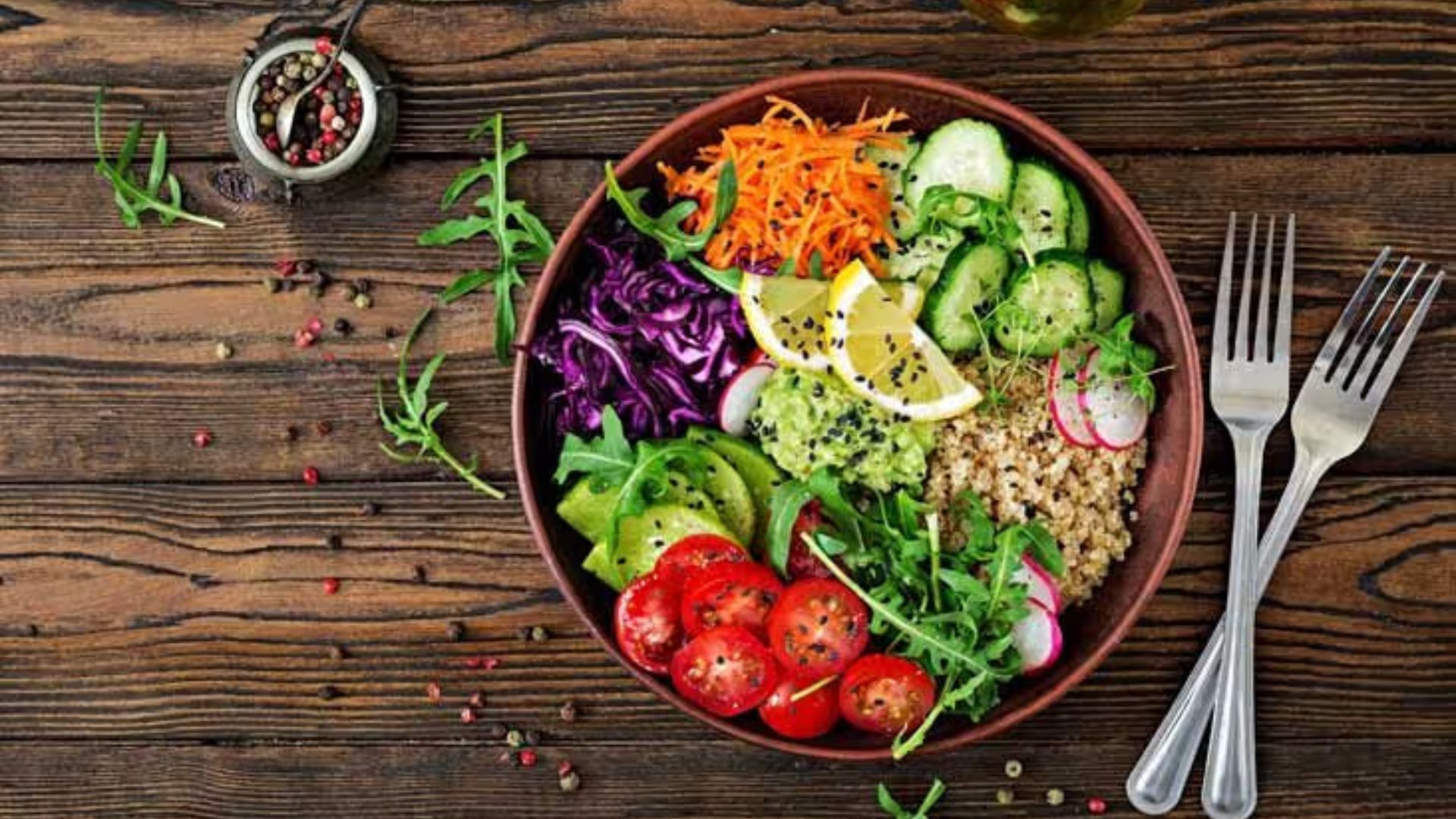A Beginner’s Guide to the Vegan Diet: Benefits and Tips
The vegan diet, which excludes all animal products, is gaining popularity for its health benefits and positive impact on the environment. If you’re considering transitioning to a vegan lifestyle, this beginner’s guide will help you understand the benefits and provide helpful tips to get started.

Benefits of a Vegan Diet
- Improved Heart Health A plant-based diet can reduce the risk of heart disease. Vegan diets are typically lower in saturated fats and cholesterol, helping to maintain healthy blood pressure and cholesterol levels.
- Weight Management Vegan diets are often rich in fiber, which promotes satiety and aids in weight management. Studies show that vegans tend to have lower body mass indexes (BMIs) compared to non-vegans.
- Better Digestion A vegan diet, filled with fruits, vegetables, whole grains, and legumes, is high in fiber. This can improve digestion and prevent constipation while supporting overall gut health.
- Reduced Risk of Chronic Diseases Vegans may experience a lower risk of developing chronic conditions like Type 2 diabetes and certain cancers. Plant-based foods are packed with antioxidants and nutrients that support overall health.
- Environmental Impact A vegan diet is more sustainable as it reduces the demand for animal products, which contribute significantly to environmental issues like deforestation and greenhouse gas emissions.
Tips for Transitioning to a Vegan Diet
- Start Slow Begin by incorporating more plant-based meals into your diet. You don’t need to go fully vegan overnight—gradually replace animal products with plant-based alternatives.
- Experiment with New Recipes Explore a variety of vegan recipes to keep your meals exciting. Try different cuisines and ingredients like quinoa, chickpeas, and jackfruit to discover new flavors and textures.
- Read Labels Carefully Many processed foods contain hidden animal products. Learn to read labels and look out for ingredients like gelatin, casein, and whey, which are derived from animals.
- Stock Your Pantry with Vegan Staples Keep a well-stocked pantry with vegan staples like beans, lentils, nuts, seeds, whole grains, and plant-based milks. These ingredients can serve as the foundation for nutritious and satisfying meals.
- Stay Mindful of Your Nutrient Intake While a vegan diet can be healthy, it’s important to ensure you’re getting enough nutrients, particularly protein, iron, calcium, and B12. Incorporate a variety of plant-based foods and consider supplements if needed.
- Find Vegan Alternatives Nowadays, there are many plant-based alternatives for meat, dairy, and eggs. Try out vegan cheeses, plant-based burgers, and dairy-free milk to help with your transition.
Conclusion
Transitioning to a vegan diet can offer numerous health benefits, from improved heart health to better digestion, while also supporting environmental sustainability. With the right approach, you can enjoy a balanced, satisfying, and nutrient-rich vegan lifestyle.



